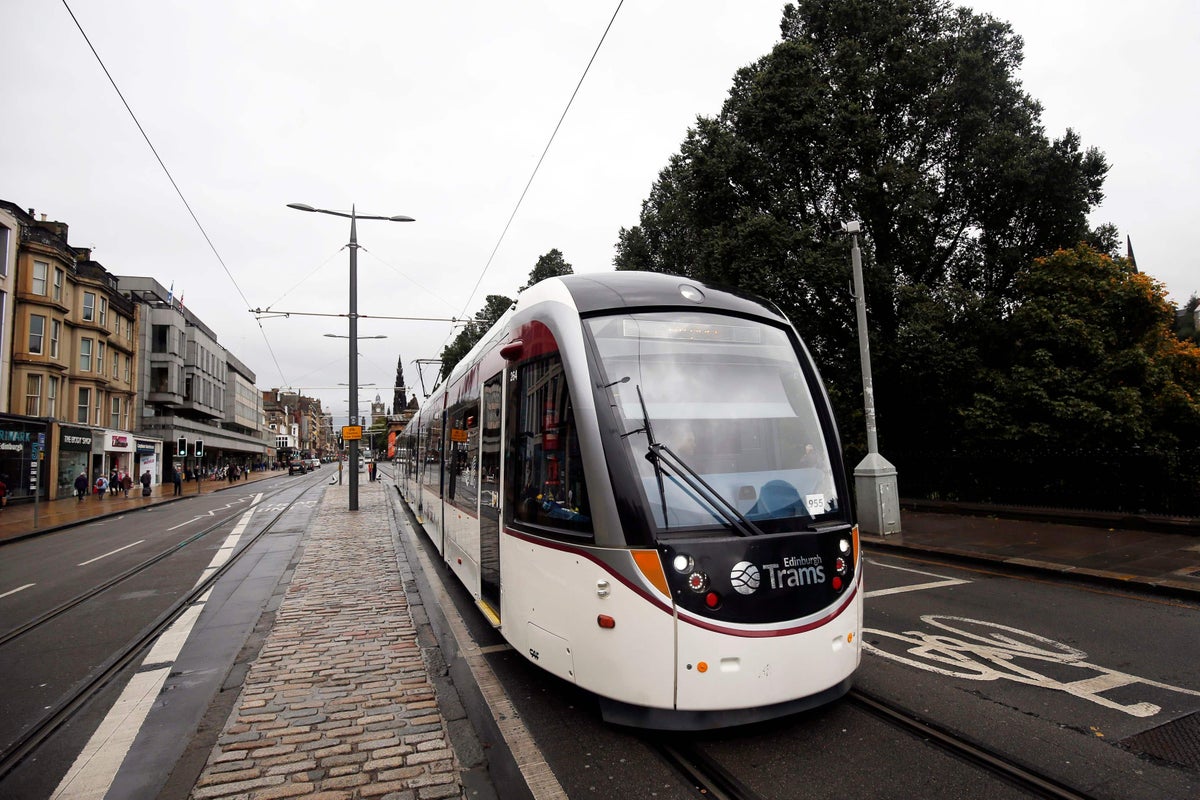
City authorities and Scottish government ministers were chiefly to blame for a “litany of avoidable failures,” according to an official inquiry into the delayed and over-budget Edinburgh tram project.
“Poor management and abdication of responsibility on a large scale have had a significant and lasting impact on the lives and livelihoods of Edinburgh residents, and the reputation of the city,” concluded Lord Hardie, the retired judge who chaired the nine-year inquiry.
But his findings were immediately dismissed by Scotland’s current transport minister, Mairi McAllan, who said the inquiry itself had been “too long and too costly” and claimed some of its conclusions were not supported by evidence.
City of Edinburgh Council apologised, saying “serious mistakes were made” during the scheme, which cost more than double the original estimate and opened in 2014 with a curtailed route and another planned line axed altogether.
Construction of Edinburgh’s trams caused interminable roadworks— (Getty Images)
Contractors and the city’s transport quango became embroiled in a bitter and lengthy blame game as the project became mired in delays, while the landmark Princes Street suffered two major and lengthy closures: first to dig up the road and lay the route, then again to fix defective concrete.
Lord Hardie’s 959-page report said the project had cost even more than previously feared, at £835.7m. Its recommendations include legislation to enable sanctions against individuals or companies “who knowingly submit reports that include false statements” on the progress or cost of major projects.
“There was a litany of avoidable failures on the parts of several parties whose role it was to ensure that public funding was spent effectively and to the benefit of Scotland’s taxpayers, and that the Edinburgh Trams project was delivered efficiently,” Lord Hardie said.
There was a political dimension to early stages of the project; the SNP, which had wanted to prioritise improvements to the A9 trunk road, had become reluctant supporters of the project, commissioned under a Labour adminstration.
The original business cases for the scheme were also “misleading” and did not represent the risk allowance, Lord Hardie said, while the decision of SNP minister John Swinney, who became Scotland’s finance secretary in May 2007, to scale back the involvement of Transport Scotland, was a mistake.
Scottish Conservative MSP Miles Briggs said the report showed “that ministers failed to protect the public purse and acted in the SNP’s political interests, rather than the public interest.”
Cammy Day, the current leader of City of Edinburgh Council, said: "There’s no getting away from the fact that the original project caused a great deal of disruption to residents and businesses, as well as damaging the city’s reputation, and on behalf of the council I want to apologise for this. I won’t, however, apologise for building a tram system or for our ambition to develop it further.”
The first part of the tram line had “flourished” in the nine years since it had opened, he said, and the recent extension to Newhaven is “extremely popular.”







